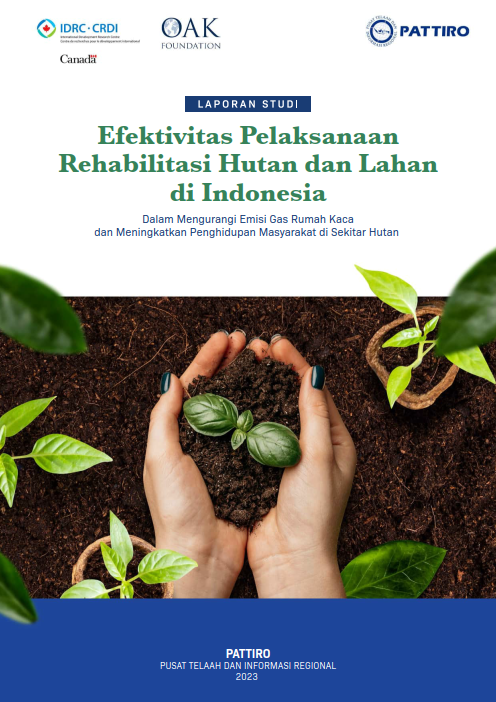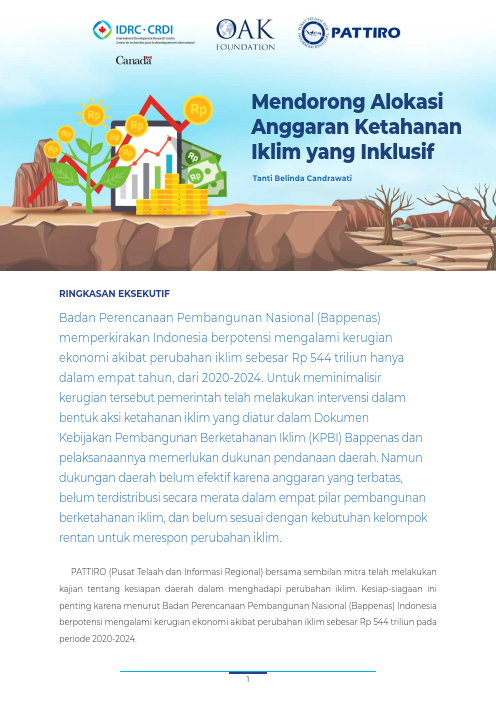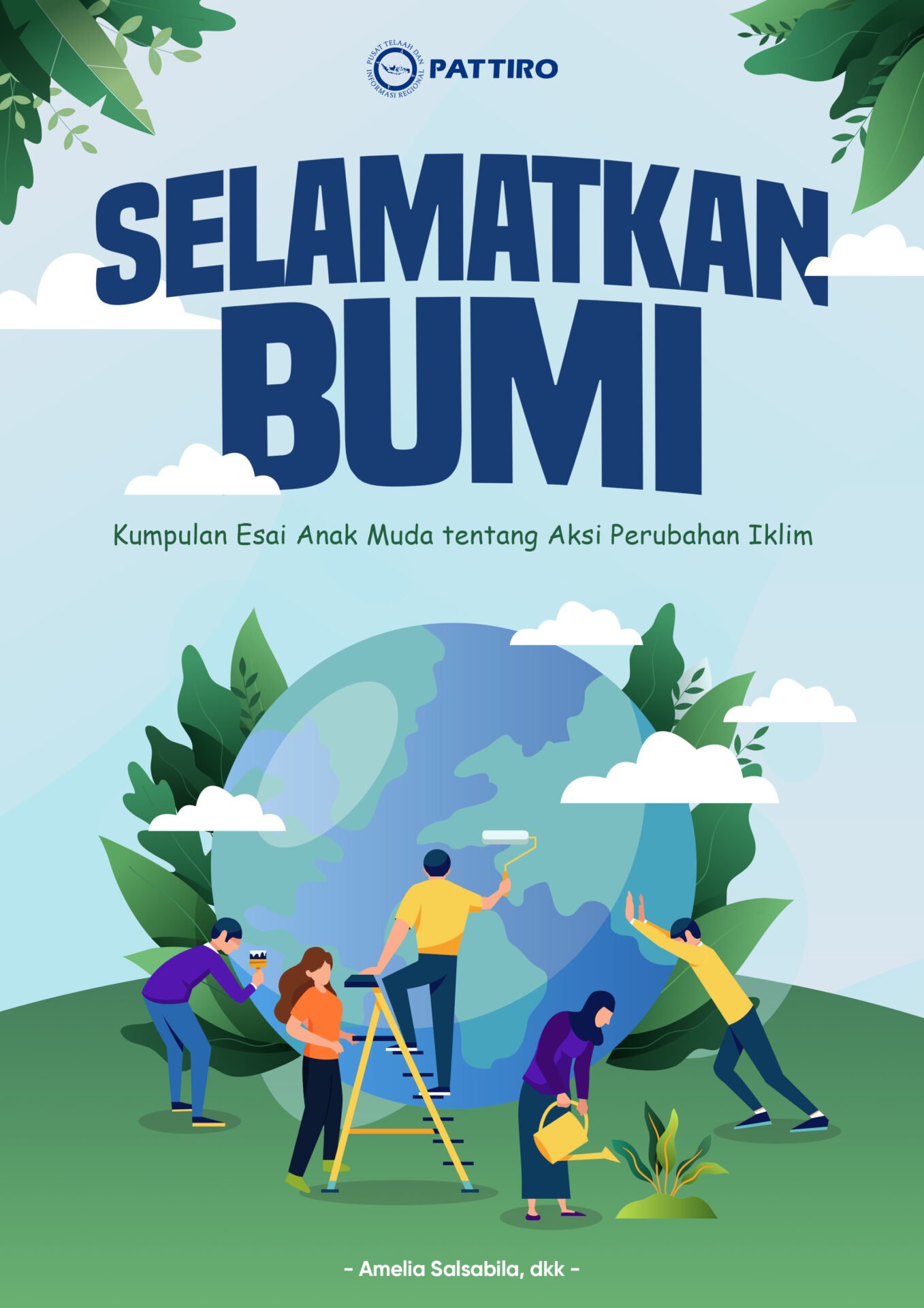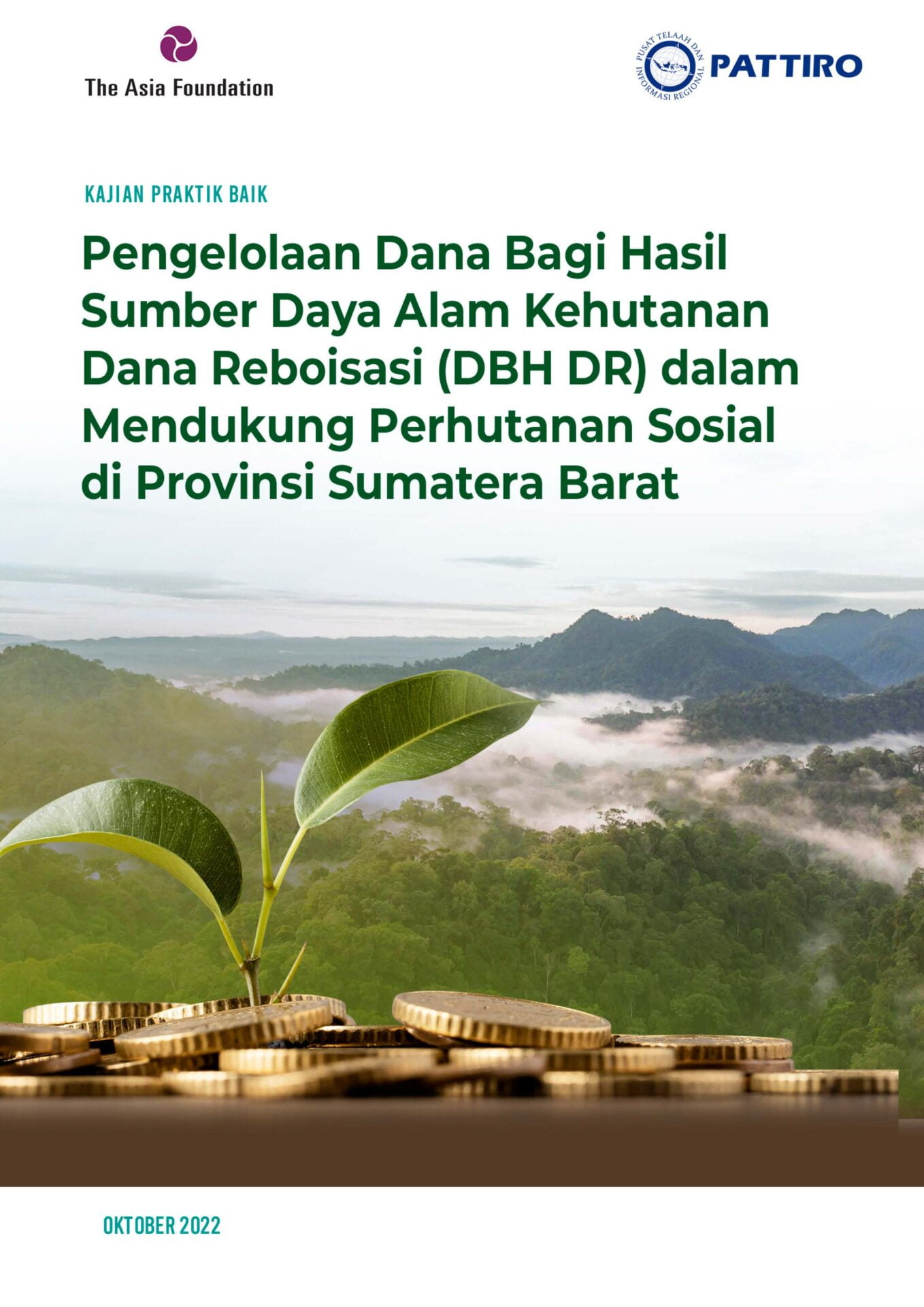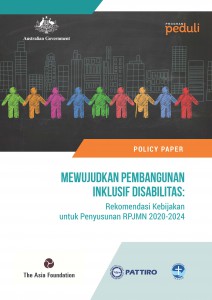 This policy paper was prepared as part of the contribution of PATTIRO and the civil society that cares for persons with disabilities to provide input to the Government in order to compile the 2020-2024 National Medium Term Development Plan (RPJMN). Attention to persons with disabilities is very important, because of the large numbers of such persons and the challenges faced, including social isolation and facing discrimination in access to health and other services, education and employment.
This policy paper was prepared as part of the contribution of PATTIRO and the civil society that cares for persons with disabilities to provide input to the Government in order to compile the 2020-2024 National Medium Term Development Plan (RPJMN). Attention to persons with disabilities is very important, because of the large numbers of such persons and the challenges faced, including social isolation and facing discrimination in access to health and other services, education and employment.
Specifically, this policy paper addresses three important issues related fulfillment of disability needs, namely data collection, public services and planning and budgeting. On the issue of data collection for persons with disabilities, the problem faced is the different results of data collection depending on organizer of data collection and allocation. In other words, there is no single data collection system. In addition, the data generated have not been able to describe the actual condition of the persons with disabilities and are not detailed. On the other hand, there are also initiatives for data collection that have been done by civil society organizations that can be utilized by the Ministry and BPS. These include participatory data collection process involving persons with disabilities.
Meanwhile, on the issue of public services, the problems faced are that the various provisions governing public service for persons with disabilities cannot be optimally implemented, because they are still in the level of general principles, and not yet operationalized into more technical provisions. Lack of understanding on how to serve persons with disabilities is also a problem. Especially the issuance of Law No. 8/2016 concerning Persons with Disabilities (Disability Law) that changes the position of the issue of disability from social based to human rights based has not been fundamentally understood by many organizers of public services. The result is that the service given by most organizers of public services have not been disability friendly, in the sense of not paying attention to obstacles faced by persons with disabilities when interacting with service providers.
Other problems related to public services as mandated in the Disability Law are the relatively low participation of persons with disabilities in drafting public policies and services, as recipients of service as well as service provider; and the unfulfilled formation of Disability Services Unit which is an obligation of Ministries/Institutions and Regional Governments. Especially in basic services, namely education and health, the challenges faced are the less than optimal implementation of inclusive education, because of the lack of Special Companion Teachers (GPK), no acceptance of GPK in the ASN acceptance scheme of teachers, and no specific curriculum for inclusive schools.
On planning and budgeting, even though the 2015-2019 RPJMN has stated commitments on the planning and budgeting that is pro-disability in the field of Social Welfare, it has not explained the strategy and the mechanism of how to plan pro-disability budgeting. Also it has not included the Village Budget as one of the funding sources can be used for fulfillment of disability rights. Currently budgeting for persons with disabilities remains the task and function of the certain regional organizations/devices (OPD) such as Social Services/Community Empowerment.
In addition, various Disability Regional Bylaws that have been determined and promulgated by around 29 local governments have not reflected improved participation in planning and budgeting. One of the reason is the lack of specific description about the right to participate in planning and budgeting, lack of operational regulations and lack of monitoring carried out on the application of the said law.

